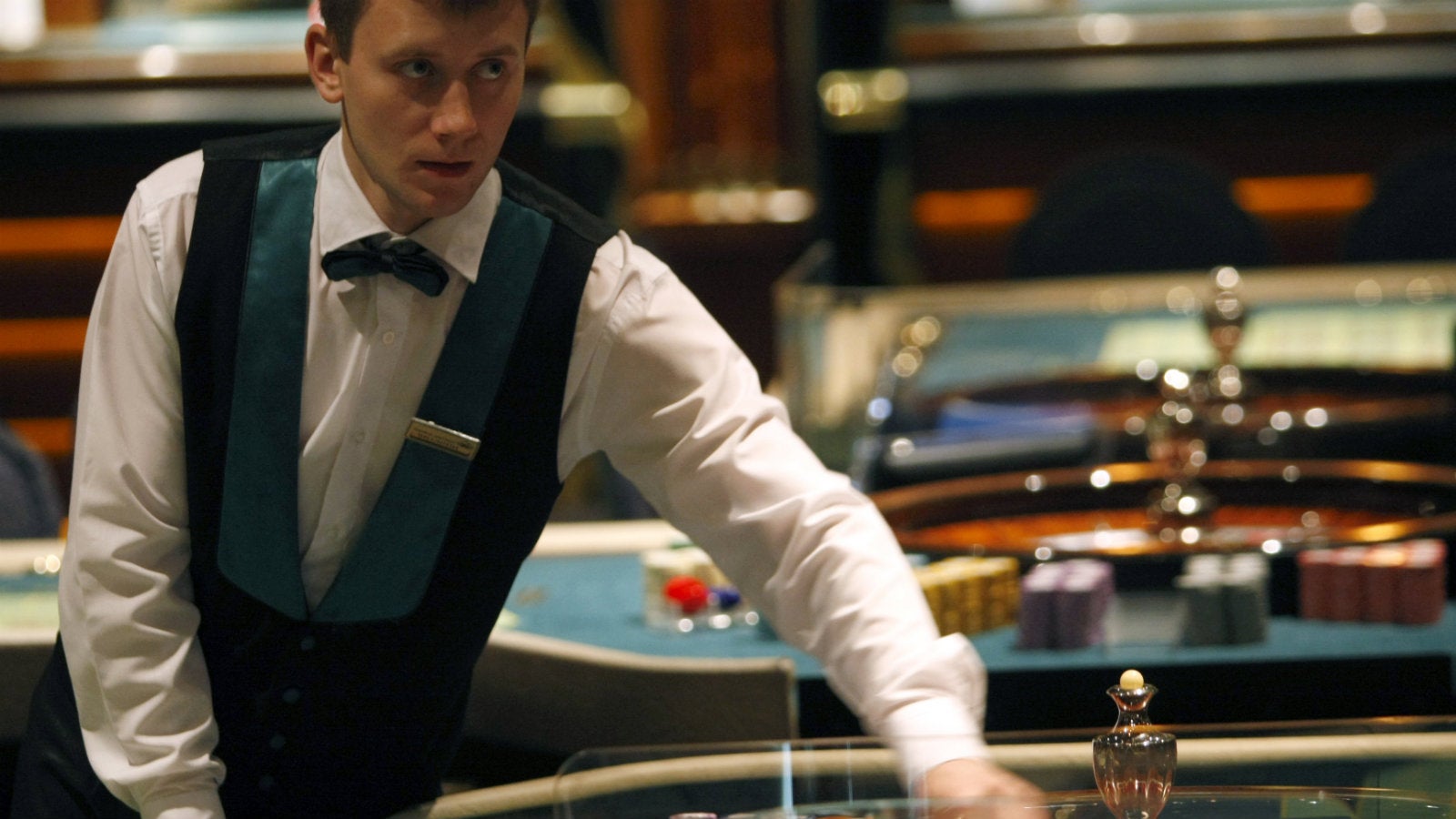A casino that has no house aims to change gambling
The first rule of gambling is this: The house always wins. Professional gamblers know this. Amateurs know this. Even Danny Ocean knows this.


The first rule of gambling is this: The house always wins. Professional gamblers know this. Amateurs know this. Even Danny Ocean knows this.
The house always wins not because the game is rigged, but because that’s how the game is structured. Roulette is a classic example: The odds of the ball landing on an odd number are equal to the odds of it landing on an even number. But the odds are not 50-50: the zero (and on some tables the double zero) skews the odds in favor of the house. In an infinite number of spins, the ball will land on zero as often as it does on an odd or even number.
George Georgiopoulos, who used to work at an IT consultancy and at Thames Water, a British utility, wants to do away with the house. Along with his partner Gianni Galanis, Georgiopoulos has started bet.tra.de, an online casino in which the house will not take a cut. The pair will introduce their idea to gambling executives at the Excellence in Gaming conference in Berlin next week.
“We don’t have the zero,” says Georgiopoulos. He calls bet.tra.de “P2P betting”, a bit of tech jargon that was popular before “sharing economy” replaced it. The idea is the same: Just as Airbnb, in theory, connects somebody with a spare room with somebody who needs a place to sleep, bet.tra.de aims to connect someone who wants to bet on red with somebody who wants to bet on black.
The idea is to have enough gamblers on the platform at any given time to fill an entire roulette board. With everything perfectly matched, “there’s always a winner,” Georgiopoulos says.
That phrase would normally set alarm bells ringing. But Georgiopoulos has an explanation. The idea isn’t to make money on garden-variety gambling, but to offer players a secondary market to trade bets. For example, if a player changes his mind halfway through a roulette spin, he can sell the bet on to another gambler at a lower rate. Or if a virtual slot machine has dropped two out of three wheels and the chances of all cherries aren’t looking good, the original player can pass on the risk and reclaim at least a fraction of his original stake. Bet.tra.de will take a cut of these transactions.
That means the “house,” such as it is, needs to hold no cash reserves, assumes no risk, and is merely a market maker, says Georgiopoulos. And bet.tra.de will only offer games of chance: so no sports betting, and nothing that requires any degree of skill, such as poker. Instead of trying to build a user base, Georgiopoulos says the company hopes to sell its product to other, better established gambling sites such as PaddyPower.
Gambling industry insiders Quartz spoke to are not convinced it will work: why would online casinos offer a game that could harm their own business? Georgiopoulos argues that gambling site operators will be attracted to the low-risk, low-cost nature of his idea, and will be keen to try something new. At any rate, it is a chance he is willing to take.